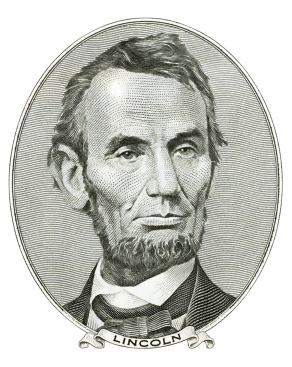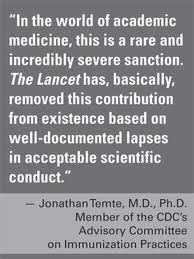The battle for consumers’ minds can be won or lost with the opening skirmish. Research into the factors that persuade people to accept a viewpoint and act reveals that effective pre-persuasion is an important first step. Eminent social psychologist and researcher Dr. Elliot Aronson and his coauthor state, “Pre-persuasion, then, refers to how an issue is structured and how the decision is framed.” If successful, pre-persuasion establishes “what everybody knows” and “what everybody takes for granted.”
A pre-persuasion classic
History furnishes an excellent example of this technique’s power.  Abraham Lincoln, a master of pre-persuasion, sorely needed that skill. In 1863, Lincoln was an unpopular figure, not just in the South but to many in the North. The Civil War’s cost in American lives was extraordinary. The Battle of Gettysburg had caused over 46,000 casualties. At the dedication ceremony of Gettysburg’s new national cemetery, Lincoln spoke for just three minutes. Those three minutes changed history.
Abraham Lincoln, a master of pre-persuasion, sorely needed that skill. In 1863, Lincoln was an unpopular figure, not just in the South but to many in the North. The Civil War’s cost in American lives was extraordinary. The Battle of Gettysburg had caused over 46,000 casualties. At the dedication ceremony of Gettysburg’s new national cemetery, Lincoln spoke for just three minutes. Those three minutes changed history.
In his address, Lincoln needed to convince Americans that the unpopular Civil War was worth the tremendous cost in lives. To accomplish this, Dr. Aronson and his coauthor state, it was vitally important that he use pre-persuasion to properly structure the issue at hand. Many in the North were willing to fight to save the union and all it stood for. They favored prohibiting slavery outside the South, but many were prepared to let it continue there. After all, slavery had been legalized in the US Constitution in 1789.
Lincoln needed Americans to accept his recent Emancipation Proclamation. To accomplish this, he had to convince Northerners to adopt the viewpoint that the nation really began, not with the Constitution, but with the Declaration of Independence in 1776. That document had proclaimed, “All men are created equal.” Lincoln achieved his goal with his eloquent, easily remembered opening words:
Fourscore and seven years ago, our fathers brought forth on this continent a new nation, conceived in Liberty, and dedicated to the proposition that all men are created equal. Now we are engaged in a great civil war, testing whether that nation or any nation so conceived and so dedicated can long endure.
By accepting this skillful statement, Americans adopted the idea that the nation had indeed begun with the Declaration of Independence. That view that is still widely accepted today (the American Bicentennial was celebrated in 1976, not in 1989). Further, the President framed his message so that his listeners would recognize that the “grand experiment” in democracy demanded that all men be given equal rights. In addition, Lincoln helped his listeners see that the war must be won if the United States was to endure at all.
His masterful pre-persuasion established a climate in which the North continued to fight the war to its successful conclusion. Soon Congress amended the Constitution to ban slavery in the US and guarantee equal rights to all its citizens. The long, hard-fought battle for civil rights would have been finished before it started without Lincoln’s successful speech. This shows the power of effective pre-persuasion in establishing a climate favorable to the message.
One effective pre-persuasion tactic
How can marketers accomplish this today? One way is to start a “factoid campaign” (“factoid” is used here to describe “little facts,” not falsehoods which are easily uncovered in this Information Age). Why repeat factoids? For several reasons:
- Lincoln’s opening tactic in the Gettysburg Address really works. As Stanford Graduate School of Business Professor Chip Heath and coauthor write, simple statements that are full of meaning are easily remembered. They can quickly go viral. Varieties of the popular proverb, “A bird in the hand is worth two in the bush” appear in European cultures from England to Russia. That idea appeared in an Aesop’s fable in 570 BC. It may still be quoted in corporate boardrooms today.
- Research finds not only that “repetition is the mother of retention,” but that even false statements
 often repeated are widely regarded as true. News of the study indicating that measles, mumps and rubella (MMR) vaccines cause autism, for example, raced across the media in broadcast, print and online. It has since been thoroughly discredited by science. Highly respected medical journals like Britain’s The Lancet have proclaimed the vaccine-autism link false and its research fraudulent. Yet many parents still believe it. MMR vaccination rates have still not recovered, reports The Huffington Post.
often repeated are widely regarded as true. News of the study indicating that measles, mumps and rubella (MMR) vaccines cause autism, for example, raced across the media in broadcast, print and online. It has since been thoroughly discredited by science. Highly respected medical journals like Britain’s The Lancet have proclaimed the vaccine-autism link false and its research fraudulent. Yet many parents still believe it. MMR vaccination rates have still not recovered, reports The Huffington Post.
This shows the power of factoid campaigns. If people readily believe vivid lies that go viral, what could effective repetition do for the truth? Since proverbial sayings are easily remembered and quickly spread, it clearly behooves marketers to frame salient points about their products into similar “nuggets” and use multiple channels to distribute them. Techniques like these and others can help to prepare the soil in which effective marketing campaigns can grow.
Larry Rondeau, with a degree in Marketing Psychology, is seeking full-time employment or consulting opportunities in Marketing, Account Planning or Content Management. He can be reached by email or on LinkedIn.

iPhone手機殼…
Keep up the superb work, I read a few articles on this website and I think that it’s interesting and contains superb information….
This is incredible- I’m obsessed!